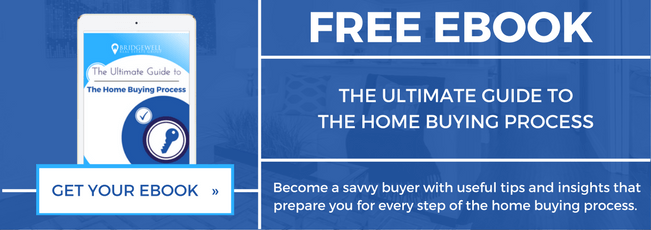Real Estate Clauses for Contract:
Everything You Need to Know About Subject Clauses & Subject Removal
When it comes to buying a home, safety comes first!
Subject clauses are clauses written in to the contract that are there to protect the buyer and ensure that due diligence is done on the property.
This blog discusses the type of subjects that are common when writing an offer, so that you know how to write a contract properly.
We also go through the purpose of subject removal and important take-aways.
Keep reading for important contract details!
What are Common Real Estate Subject Clauses in Contracts?
While you can customize your clauses for special requests, the below are typically the most common subject clauses in a contract:
Subject to financing:
Obtaining satisfactory financing at a satisfactory rate. This is to ensure that you can obtain financing safely on the property and that the lender is satisfied with it.
Subject to inspection:
This is to ensure that you know the life expectancy of the major parts of the home that you’re purchasing, and what you may need to fix/maintain immediately and over time.
Subject to title search:
This is to confirm that the sellers of the property are the correct owners of the home, and that no owner is missing. It is also to make yourself aware of any charges that may be on title, such as a restrictive covenant or easement that you will have to uphold.
Subject to property disclosure statement:
This is to review the history of the home that you are purchasing. This statement is signed by the seller(s), and discloses information such as history of infestation, leaks, illegal activities, restrictions, and much more.
Subject to strata documents:
If you are purchasing a strata property, there will be strata documents such as bylaws and meeting minutes that you will be able to obtain from the listing agent/seller. You’ll want to review all of these before removing subjects so that you can keep track of future special levies, deprecation and maintenance, history of the strata building/complex, and the unit details as per the strata.
Subject to sale:
In a hot market, we don’t typically see subject to sale accepted in an offer anymore; however, they do exist. Subject to sale means that the offer is subject to the sale of the buyer’s current home. If they cannot sell their home before the subject removal date, then the deal would collapse.
Why do buyers need these real estate clauses/subjects?
The purpose of subjects and subject removal is to act as a safety net for the buyers. It allows you to do your due diligence on the property once you have received an accepted offer.
Buying a property is never a simple affair, and there are risks associated with every type of home that you may buy. It is important that you and your realtor work together to ensure that you have done your due diligence and the property is good to purchase. Subject removal is there to make sure you check on questions like the following:
- Is the building a leaky condo?
- Are there special levies in the horizon? Is the strata council managing their budget well?
- Will the appraisal come out OK? Is the property worth what you bought it for?
- Can you (the buyer) obtain a mortgage on the property?
- Was the property ever used as a grow-op or use for other illegal activities?
- Are there any restrictive covenants or easements on title?
- Were renovations and/or upgrades completed with permits?
You can make sure that the above questions are all answered, and that you’re satisfied with the result of those questions. It also allows the mortgage broker to ensure that your approval for a mortgage goes through, as without an accepted offer they can only offer you a pre-approval, subject to the lender approving the property you are purchasing.
What is subject removal & how does it work?
Subject removal is the period of time that a buyer has to review the information/documents associated with the subjects that they have listed in the contract. At the end of subject removal, the buyer then decides whether they are satisfied or not with the results of each subject. Subject removal can go as follows:
- The buyer is satisfied and removes subjects via an addendum to the contract, and proceeds to hand in the deposit
- The buyer is not satisfied and collapses the deal (does not move forward with the purchase). No deposit is due.
A normal subject removal period is 7 days, but in a hot market this time can be as quick as 24 hours (with limited subjects).
For example, if you have full subjects (financing, inspection, strata documents, title, property disclosure) then you may want 7 days as more information needs to be reviewed and completed. However, if you only have a subject to inspection listed then you may be able to shorten you subject removal period to 24 hours.
For more information about what subject removal is, read this blog post: What is Subject Removal and How Does it Work?
How long is subject removal?
Subject removal is typically 7 days long; however, a buyer can choose to shorten this period if they feel necessary. (i.e. a multiple offer scenario).
The shorter the subject removal period, the more likely a seller will be to accept your offer.
When do I hand in my deposit?
The deposit is typically due within 24 hours of subject removal, but depends on how the contract is worded. If you are writing a subject free offer it is common for the deposit to be due upon acceptance or within 24 hours of acceptance.
If something comes up, like you cannot obtain a mortgage based on the property, or you are unhappy with the inspection report, then the deal dies. You would not remove subjects in this case, and would be off of the hook to purchase the property. No harm, no fowl.
For more details on how deposits and subject removal work, read this blog: Deposits on House Purchase
What is a subject free offer and what are the risks?
A subject free offer is an offer that does not have any subject clauses. It is considered to be a “firm” deal right away, and the deposit is handed in immediately. Therefore, you don’t have that 7 day safety net to do your entire due diligence.
The risk of a subject free offer is that if something falls apart once the deal has already gone firm, then you can’t back out and you will lose your deposit. For example, if you find out that there is mould behind every wall after the deal has gone firm, you’re going to need to deal with it yourself and have no means to back out. This is a risk of not having the subject to inspection. If you try to back out of the deal, you will forfeit your deposit money and also risk being sued for damages.
However, there are measures that can be taken prior to writing a subject free offer that can minimize your risks. You can perform a pre-inspection, review the title, property disclosure statement, and strata documents prior to writing, and inform your mortgage broker about the property so that he can let you know if he foresees any red flags.
For more information on subject free offers, check out this blog: Breaking Down the Subject Free Offer and How To Do It Safely
Important Points to Take Away About Subject Clauses for Buyers
—
-
The buyer can collapse the deal if they want to:
It’s not a done deal until the offer has gone “firm” and the buyer is satisfied with each subject clause. The buyer can walk away during subject removal if they are not happy.
-
The seller cannot collapse the deal:
The subject removal period is typically only in the buyer’s favour. Therefore, the seller cannot back out of the deal once an offer is accepted pending subject removal – only the buyer can!
-
Subject Removal is based on the Buyer state of mind and not action:
It’s important to look in to how your realtor writes the clause. In all of our standard clauses, removing subjects is strictly dependent on the buyer approving or being satisfied with the results. Therefore, the removal of the clause depends entirely on the standard of each buyer, which or course can vary from person to person. The inspection report can come out saying it’s in the top 1% of all buildings in Vancouver, but the buyer still has the right to kill the deal if they’re still not satisfied even with that. On the flip side, the inspection can come back as terrible and the buyer can still go forward with the deal. Moving forward is completely in the buyer’s hands.
-
You’re not limited to what the “normal” subjects are, they’re customizable:
Subjects can be customized to the needs and wants of the buyers, especially if you’re not in a multiple offer scenario is you have more flex room as to what you want. We’ve had subjects before that are subject to having an asbestos test, or subject to receiving all of the names and phone numbers of contractors that renovated the property.
—-
If you are thinking of buying a home in the near future and are looking for a realtor to help guide you through the purchase process then give us a call or text at 604-319-0200. We can walk you through all the basics, and most importantly make sure that you have a rock solid contract that keeps you protected or email [email protected] to start a conversation.




